How six schools hope Life-changing Libraries could change their students' lives
Published on: 12 Ebrill 2021 Author: Catherine Millar
As part of Waterstones Children's Laureate Cressida Cowell's Life-changing Libraries campaign, six primary schools across the country will receive a new library for their students.
Here, reading consultant Catherine Millar tells us about the schools taking part in the campaign, which aims to show the massive impact of having a school library and a reading for pleasure culture in a school. One in eight primary schools has no library provision. Does yours?
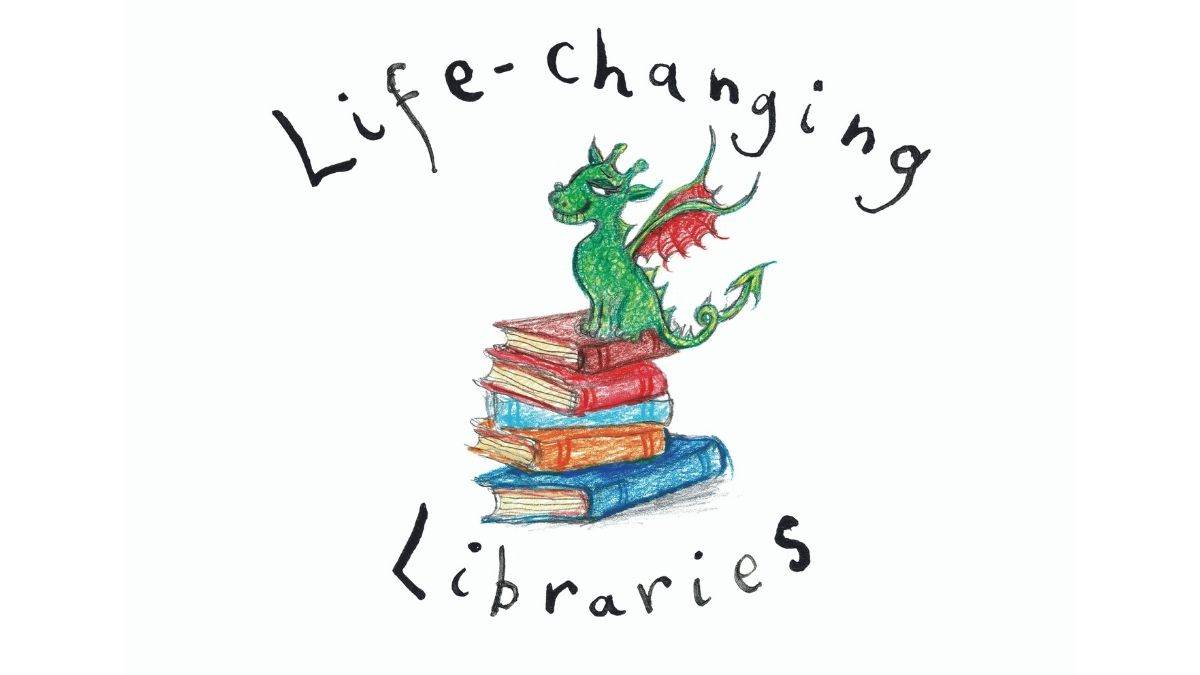
The six schools chosen to take part in the Life-changing Libraries campaign have been selected to be as diverse a mix as possible. They are community, academy and church schools; inner-city, estate and leafy-lane rural schools; large and small; very diverse and very homogeneous.
One thing they all have in common is that they had either very poor library provision or no library space at all. We hope other schools can relate, and get tips and inspiration to start or improve their own school library - and by the end of this project, we will be able to see the effect of a school library on pupils, staff and families.
So first of all meet the schools: Griffin Primary School in Wandsworth, London is an inner-city school with a diverse community including 59.4% children with English as an additional language, or EAL (the national average is 21.2%). And then there's Benwick Primary School in the Cambridgeshire Fens, a small, rural, four-class school, which has only 103 children on roll (0.8% EAL).
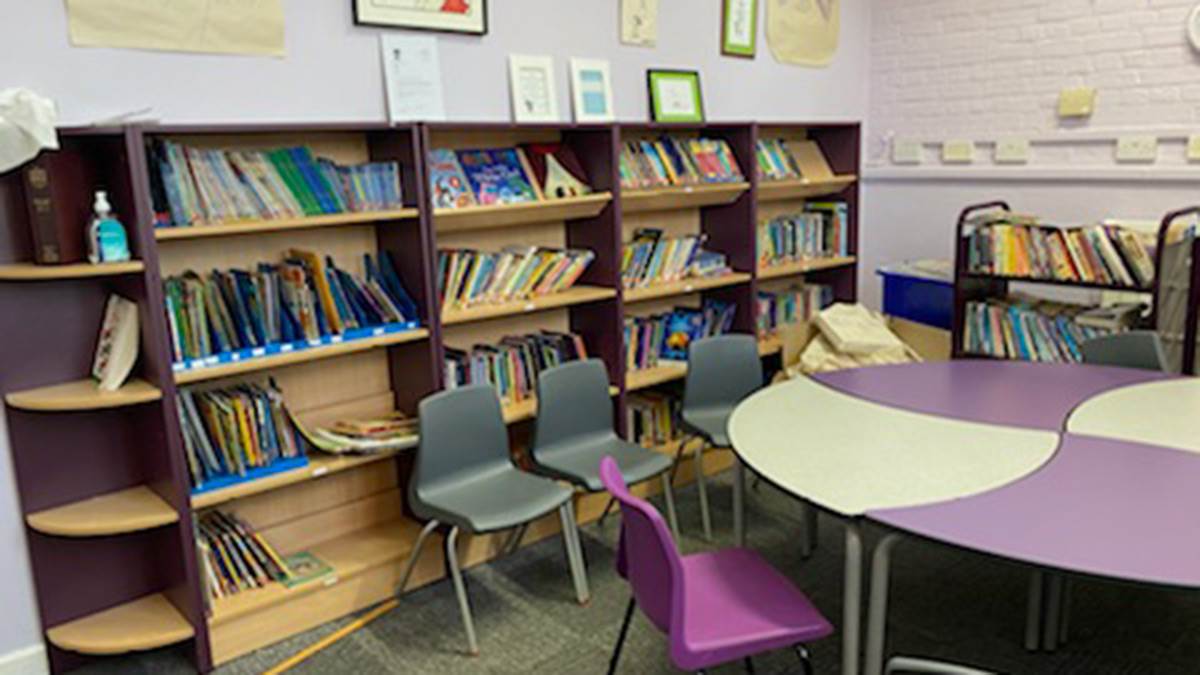
Benwick's current library space
Skerne Park Academy, located on an estate in Darlington, is more than three times the size of Benwick and has 28% children needing special educational needs (SEN) support. Dinnington Community Primary School is in a former pit community near Rotherham (30% SEN support), and Saviour CE Primary in Manchester is another inner-city primary with 29.9% EAL. Woodchurch CE Primary School is in the Wirral, and teaches many children who are experiencing adversity.
Although the schools are very different, what has become strikingly evident as the project has progressed is how much the schools have in common, despite their many differences.
'I've had various conversations with parents where they'll see a book and say, "Oooo, it's lovely", and it really brings it home that they don't have books at home,' said Sarah Reason, headteacher at Dinnington.
All of the headteachers have commented about the lack of books in their pupils' homes and the lack of opportunity to access local libraries.
'We don't have that service locally, where town parents might take their children to a storytime in a public library,' said Clare Talbot, headteacher at Benwick. 'If we could replicate something similar here it would really help our parents.'
Kate Chisholm, headteacher at Skerne Park, added, 'Children don't have the opportunity to go to the local library any more. We'll be loaning out books so that children can have that lived experience of borrowing and looking after things.'
Poor language acquisition is also another common theme. 'Our children don't have breadth of language and our library will have a positive knock-on effect on their oracy, writing and aspirations,' said Julie Davies from Woodchurch.
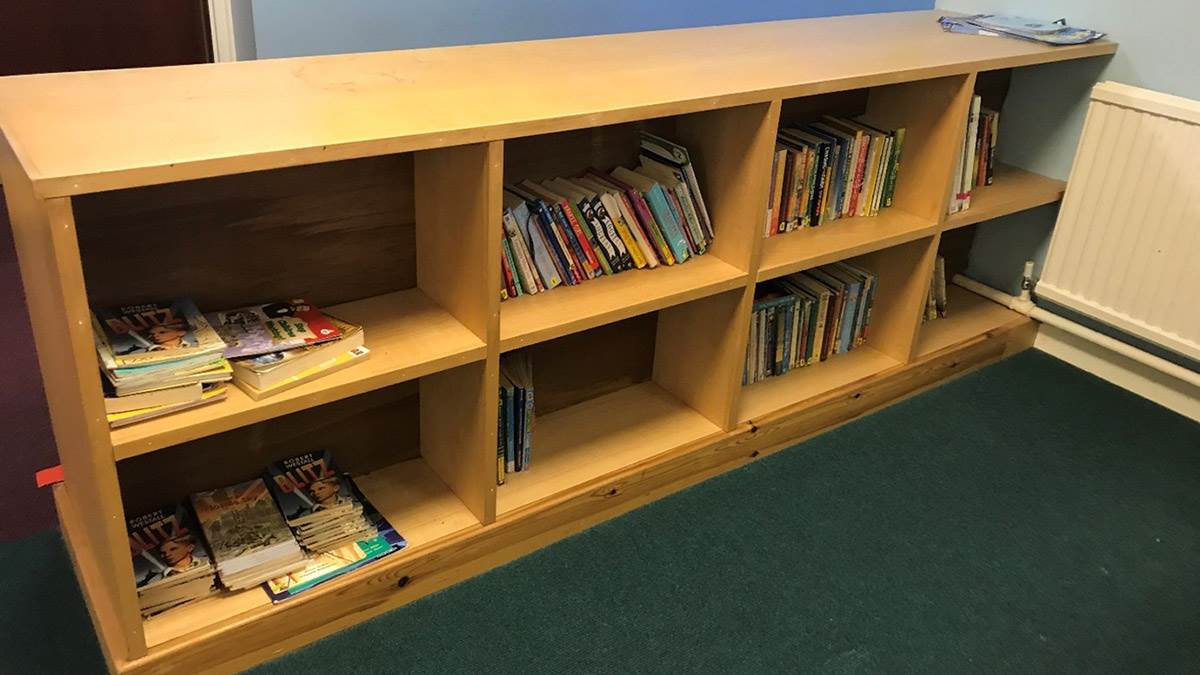
Woodchurch's current library space
To be chosen to take part, the schools had to have a supportive leadership team and a minimum of 25% children on free school meals. Most importantly, the schools had to have either very poor library provision, or no library in place - unsurprisingly, these are easy to find given that one in eight primary schools has no library at all.
So why do the schools have non-existent or poor library provision currently? Funding was cited as a barrier by all the schools.
'We've always invested in books for the curriculum and not had money left over for reading for pleasure,' said Eileen Anderson, headteacher at Saviour.
There is also the lack of priority and a book stock that has dwindled and become tatty - sustainability is a core concept of this project to ensure that the library provision endures.
Carly Doyle, deputy headteacher at Griffin said, 'Another huge barrier was that I simply didn't know how to create a library. As a teacher I know how to run a classroom, but a library is a different place and skillset. I don't know how to make it look beautiful. I don't know how to organise the books. How do I make sure books are returned? It's brilliant having access to training on how to make a library work.'
So what transformation are the schools hoping to see through Life-changing Libraries?
Physical space
Eileen Anderson from Saviour talked about the message that having tatty, old books gives to the children.
'We're a CofE school so we always talk about a special place of worship, we go to church and show children it's a sacred place full of awe that helps us keep centred with God,' she said. 'We want to create the same kind of place that is sacred for books, where children can see that we value them highly - so much so that we have two special rooms dedicated to them.'
'I want them to have that 'wow' feeling, that moment when they see the library and their eyes light up,' added Claire Talbot from Benwick. 'If we use an analogy of books being sweets, then I want them to feel like they've just walked into a sweet shop where it's floor-to-ceiling jars of sweets everywhere and they feel euphoric.'
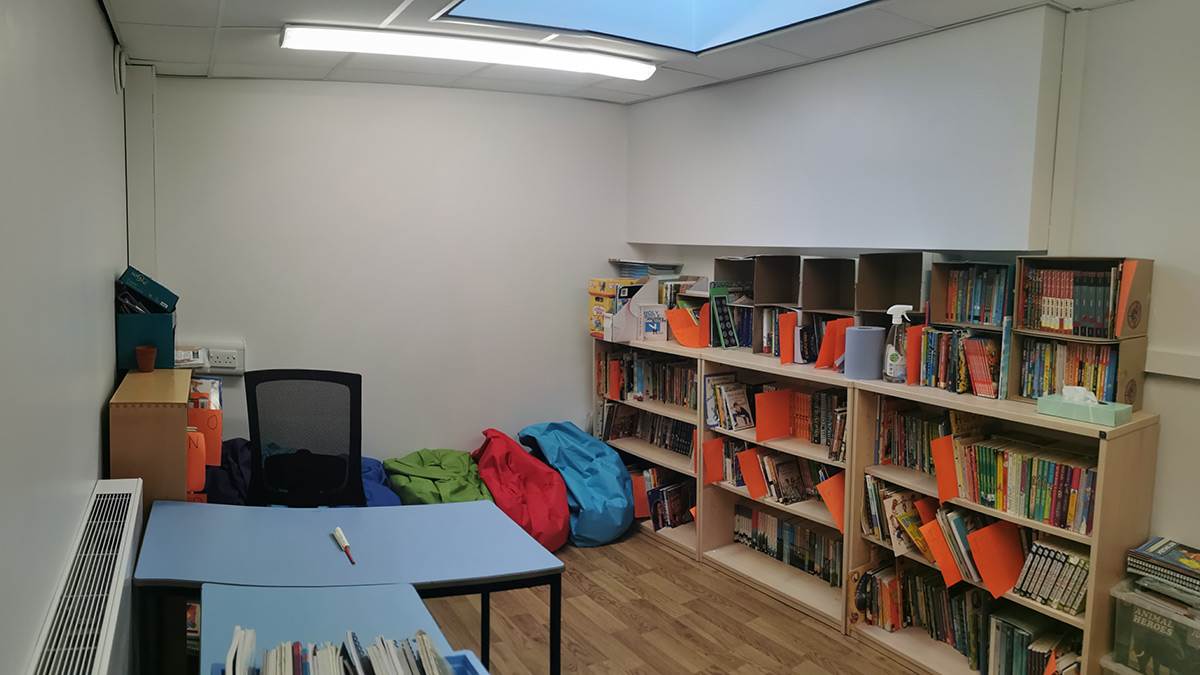
Saviour's current library space
Inspiring teachers as readers
'My class prefer to go to the books in my personal library in my classroom because I've read them all and they really look after them,' said Julie from Woodchurch. 'I hope that by having a library that is modern and up-to-date that staff won't have to go and buy books and we'll be able to spread the joy across school.'
Engaging parents and the wider community
'There is a library in Dinnington, but it's very much an adult library,' said Sarah Reason. 'Lots of our parents have low literacy skills and reading as an adult can be frightening and dry. The library will be a really useful resource to remove that fear and support our parents by bringing them in to see, hold and read books.
'We can allow them to borrow books to help them develop that bath-book-bed routine, which will be a fantastic opportunity to reduce the word gap that children experience.'
Working in a school with a majority of children who have English as a second language, Carly Doyle from Griffin is aware of cultural barriers to overcome regarding using libraries, as well as linguistic barriers. 'Being in London, we have libraries that aren't close, but are walkable,' she said. 'I don't know why our children don't visit them – are our parents worried about visiting them? Do our parents feel they don't read English so they're not places for them?
'We will hold story sessions for parents in our community to help break down those barriers, so hopefully families will use our local libraries more. Our children will be so excited to choose books with pictures of children who look like them. It will be really magical.'
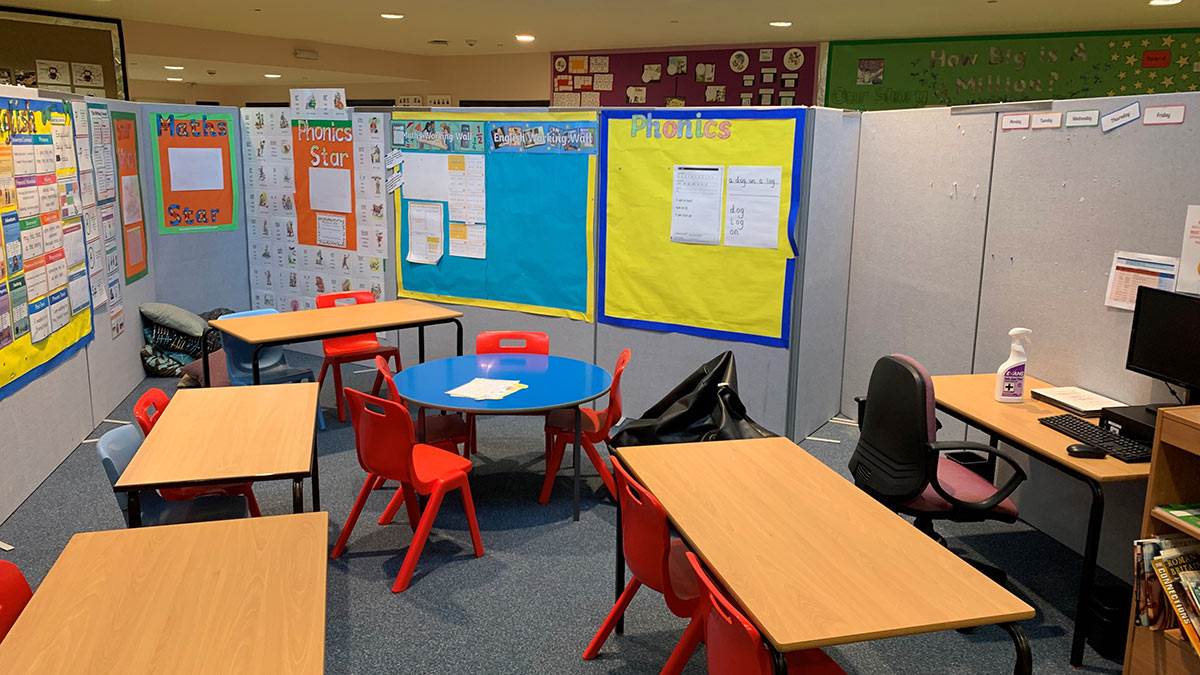
The space Skerne Park will be transforming
Sustainability
All of the schools involved are passionate about making their children's experience at school the best it can be. 'All the children love How To Train Your Dragon and the fact that someone so famous is linked to our school, with Cressida's artwork here as well - it's going to help the children realise books are like gold,' said Kate from Skerne Park.
'It's going to make the children feel so special because someone outside our school feels we're worthy enough to give us 1,000 books. It is going to be wonderful.'
The schools feel very lucky and excited to be part of this brilliant project and are determined to ensure the library is sustained, both financially by setting aside budget for new books every year, and in spirit, by ensuring the library is used all day, every day - after school too - and that all members of the school community are involved, so that the children really do feel like it's their very own magical space.
The six new school libraries will open in the first week of June and we will be working closely with the schools to help them build their reading for pleasure culture, so thast the libraries become a vitally important resource for children at the very centre of the school.
We do hope you will enjoy returning to the Life-changing Libraries page for tips, inspiration and advice from the schools we are working with, as well as other librarians, teachers and organisations that have interesting things to share.
Catherine Millar is a former assistant head teacher and reading consultant. You can follow her on Twitter at @allicatski and check out her website here.
Read Cressida Cowell's open letter to Prime Minister Boris Johnson about libraries
Waterstones Children's Laureate: Joseph Coelho
Poet Joseph Coelho is the Waterstones Children's Laureate for 2022-24.
The role of Children's Laureate is awarded once every two years to an eminent writer or illustrator of children's books to celebrate outstanding achievement in their field. Find out what Joseph's been up to.






Add a comment